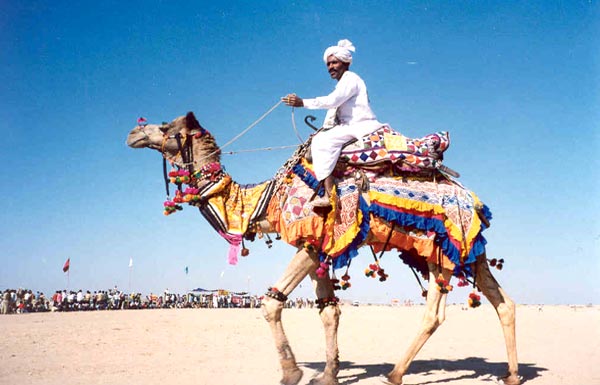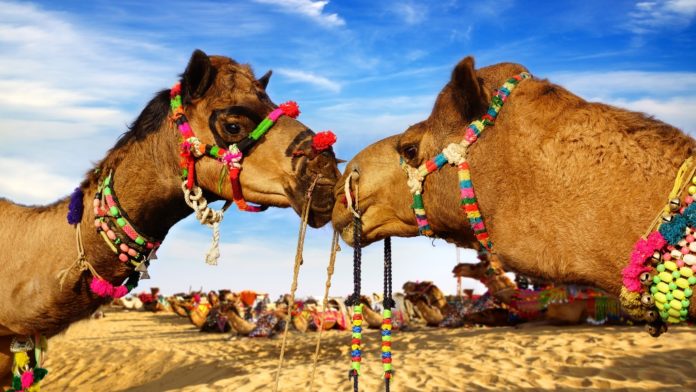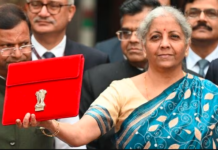Government Runs Camel Conservation Program & Camps in Various Regions to Boost their Numbers…
According to IUCN’s (International Union for Conservation of Nature and Natural Resources) latest reports camel-count in India has dropped down to less than 50,000 that is one-fourth of the total camel population registered earlier. Illicit slaughtering and smuggling of animals across the border are primary reasons behind declining number of camels in Rajasthan—a matter of grave concern for Sudheer Kumar Sharma, the district collector of Barmer. Just recently, Sharma devised a conservation program to save 43,000 camels in the district.
Camel Camps Attempt to Raise Awareness in Rural Regions…
Barmer is a prominent camel haven of Rajasthan. Despite this, the tendency of local nomadic communities to relocate from one place to another, every once in a while is the main reason behind growing health issues in camels. Sometimes, the owners are unaware of government schemes while they’re busy earning their livelihood. In such cases, it becomes difficult for the government to extend the benefits of government schemes to the owners. However, now they’ve come up with a proper solution to this problem.
In line with the new camel development scheme, district administrations will organize awareness camps in different areas to inform the villagers about camel breeding, associated government schemes for animal husbandry and its benefits. Following this, a camp was set up in Dandali village wherein 250 camels were ‘tagged’ (a concept similar to geo-tagging) to monitor their progress. The animals were registered under government’s camel development scheme.

As a part of this scheme, the government will provide complete medical facilities to the registered animals. They’ll also provide Rs 10,000 in three phases to female camels at the time of delivery.
Before launching the camel development scheme, the district administration devised an action plan for educating natives on the benefits of owning a healthy camel. Side-by-side, the government is making attempts to generate awareness about their animal-centric scheme—Bhamashah Pashu Bima Yojana that will provide some respite to the weary camel owners in desert. There’s an animal fair going on at Tilwara, where the officers will try to extend the benefits of animal husbandry schemes to maximum owners that turn up at venue.
Dr Narayan Singh Solani, the joint director of animal husbandry department has registered 440 camels under the scheme—an achievement for Rajasthan. Now, the government will collect the bank details of camel owners and register their animals at nearby veterinary hospitals to ensure their proper development.
They’re hopeful that financial assistance will encourage farmers to breed more animals and help curb sale of young calves.












